Ullozhukku review: Urvashi, Parvathy Captivate In A Flawlessly Written Film
Ullozhukku is unafraid to put its women at loggerheads with each other in a piece of cinema that is a damning indictment of a conservative, patriarchal society. Aditya Shrikrishna writes.
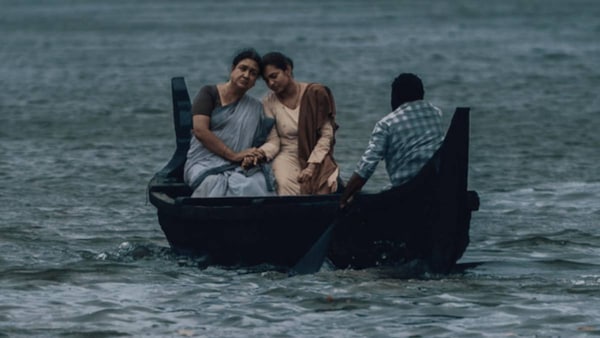
Last Updated: 10.30 AM, Jun 21, 2024
This column was originally published as part of our newsletter The Daily Show on June 19, 2024. Subscribe here. (We're awesome about not spamming your inbox!)
***
ULLOZHUKKU — written and directed by Christo Tomy — pits one Indian cinema legend against an actor widely considered a generational talent. At that surface level examination, it is a strange film that is unafraid to put its women at loggerheads with each other in a piece of cinema that is a damning indictment of a conservative, patriarchal society. This Malayalam film doesn’t treat Urvashi’s Leelamma and Parvathy Thiruvothu’s Anju as delicate feathers, instead drawing them as the flesh and blood, flawed but combative, high-strung women that they are. It accords both grudging respect, it admonishes them and rehabilitates them in a single, flowing scoop of a screenplay, a winner at Cinestaan India’s Storytellers Script Contest in 2018.
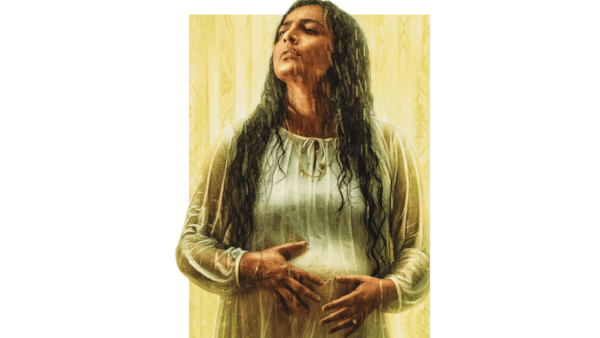
Anju married a seemingly vigorous Thomas (Prasant Murali), Leelamma’s son, who falls into ill health almost as soon as he climaxes on their wedding night. He is bedridden and needs help round the clock, so either Leelamma or Anju is always by his side. Ullozhukku plays with its temporal expanse in curious ways. We begin with Anju and her unemployed boyfriend Rajeev (Arjun Radhakrishnan) in the sari shop where Anju is a saleswoman. She warns him about finding a job as soon as possible, otherwise an arranged alliance will be thrust upon her. A quick cut and we are at Anju and Thomas’s wedding.
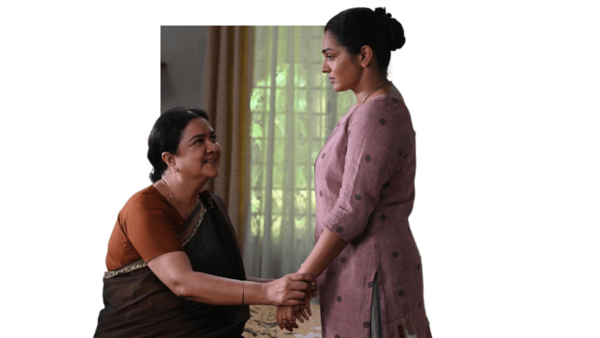
Christo Tomy is a big fan of smash cuts to jump across time, finding effective use for them throughout the film. He even uses them in tiny moments like when Anju takes a pregnancy test, and a jump cut takes us from her anxious look to her plain stare into the mirror. There is another beautiful cut in which a flaming discovery is decorated by the sound of a matchstick and leaps to Anju lighting a candle. The shift from the wedding night to a sick Thomas, hospital visits and sponge baths is just as sudden in this otherwise wonderfully glacial film shot by Shehnad Jalal and edited by Kiran Das.
Ullozhukku does a lot with less. There are throwaway shots and lines that expand our understanding of the characters, their intentions and motivations. This keeps us not only guessing but also shifting sympathies. Leelamma gives an abridged version of her family’s tragic history to Anju. Urvashi sells it so powerfully that a rock would melt into a puddle of tears. But we later learn the privilege and wealth of this family and the mechanics of Anju’s marriage. Leelamma’s tactic to evade an argument with Sheba, her daughter, is to order her to change the granddaughter’s clothes. A simple line reflects invisible power dynamics within the family.
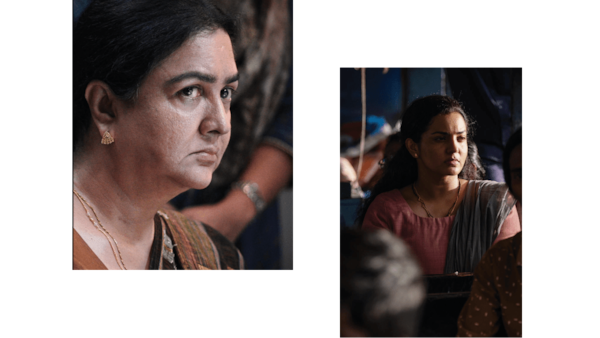
The actors express more with their faces than with dialogues, be it Anju or her mother. Women are both heroes and villains in this film and by the end, we are only left with the latitudinous variations that make up a person, the ebb and flow of women’s lives unfurled on a colourful canvas. And there is the aspect of motherhood. The film reminds us of Alice Diop’s Saint Omer in which a defence lawyer compares the mother to a chimaera, a creature made of other creatures. She makes a point about mothers carrying the traits and nature of their daughters and vice versa. Like a chain, changing and extending. Leelamma and Anju, another developing mother-daughter relationship, is similarly complex here with its several textures.
Christo Tomy’s visuals, on the other hand, remain uniform, focusing on the floods and the waterlogging seeping into every frame. The film’s backbone is a delayed funeral due to the rains, and this is the period when Leelamma and Anju’s relationship comes to a boil. Almost the whole film is set around Leelamma’s ancestral property, one that is slowly sinking as time passes.

Another throwaway shot is a woman filling a bucket with tap water, the bucket angling over rainwater threatening to usurp the tap. It is a neat metaphor for all the relationships at play in this film — the “undercurrent” that the English title suggests — that are threatened by minute decisions, secrets and past errors of judgement. People wade through water both inside and outside their homes. The dead body cannot yet go below the ground, but the living slowly creep underwater. Sushin Shyam’s operatic strings work well with the silence, prayers, thunder and splattering rain creating scenes of dread as the film keeps throwing surprises.
Ullozhukku has one of the most unusual intermission scenes when Anju’s heavy heart reveals a life altering secret that she bookends with a sigh of relief. A tool traditionally used as a cliffhanger conveys an expression of internal reprieve. She is unable to use her tiny window of freedom and is constantly looking for closure, caught between a rock and the hard place that is Rajeev. There is water everywhere and all of them are stranded physically, emotionally and spiritually.
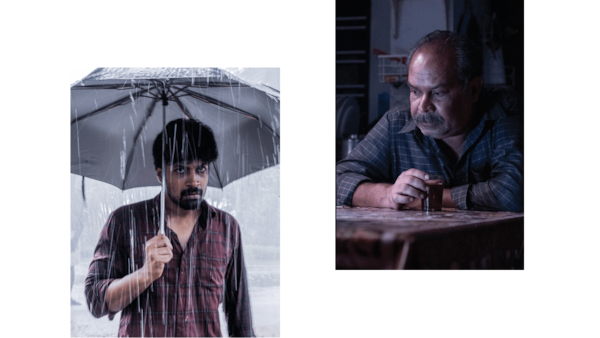
For most of the film’s runtime, as Anju and Leelamma are caught in a maelstrom, they are always shot against each other. Shot and reverse shot. As the characters amble towards a life of rebuilding and companionship, Christo Tomy shifts the visual grammar. By the end of the film, they are both in the same frame, either their faces visible or they are blocked side by side together. Ullozhukku is rewarding on all fronts — the film is visually captivating; the writing is flawless with great performers giving their best. Along with this, it is also ambitious enough to colour its characters in myriad shades, neither victimising nor exonerating them for their actions and decisions.

 Premium
Premium